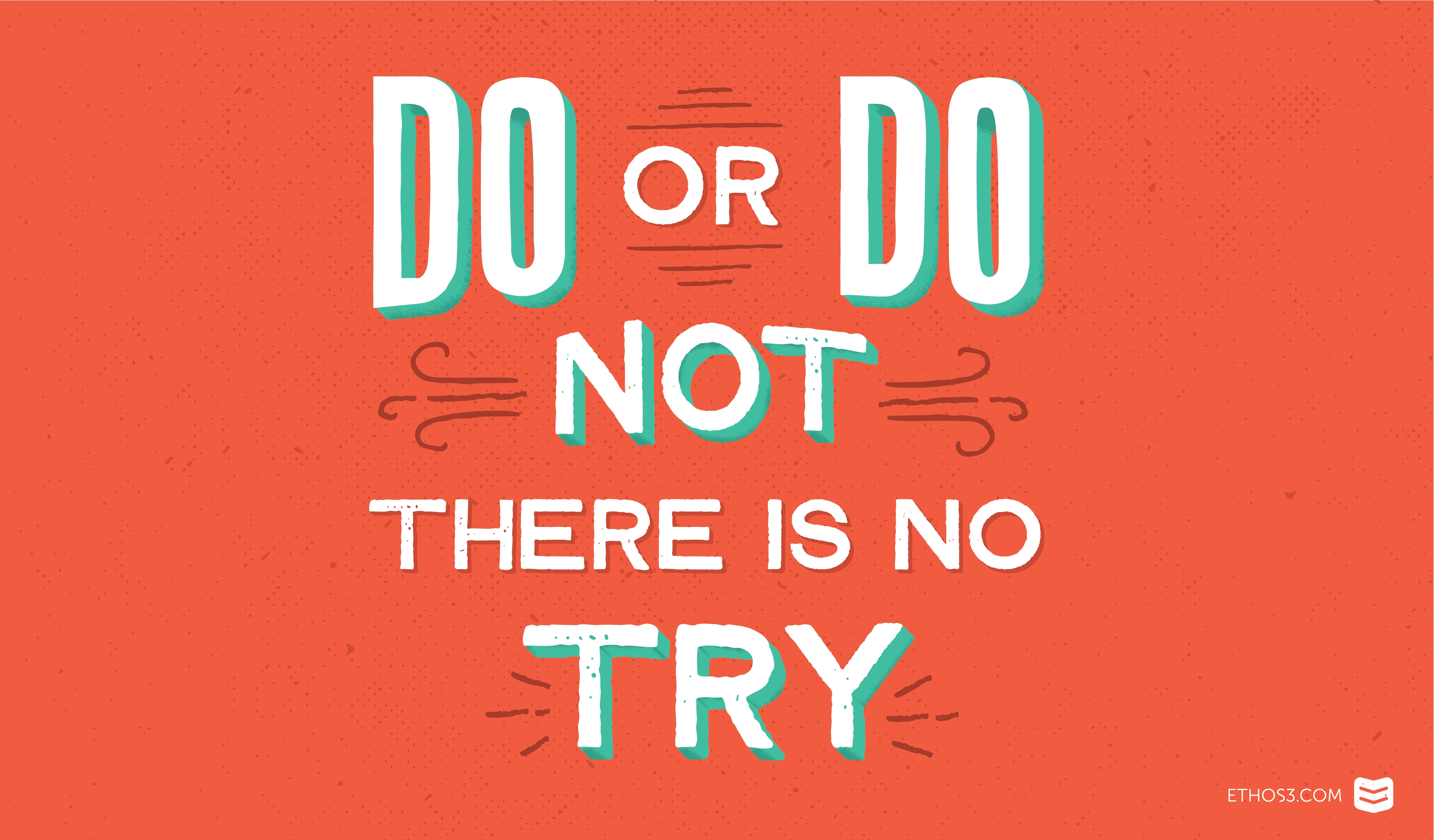“Do or do not; there is no try.” The all-too familiar words of Star Wars guru of the Force, Yoda, have a direct application to workplace and other professional communication settings.

At Ethos3, we strive to adhere to a list of 10 core values to enhance our creative work, our client relationships, and our personal lives. Recently we discussed the following core value: Commit. And as a group, we determined that a crucial component of commitment is eliminating the word ‘try’ from your email and verbal communications. When a coworker asks you to complete an assignment by the end of day on Friday, the last thing you should respond with is this statement: ‘I’ll try to have it to you by close of business Friday.” President of Well Said, Inc. Darlene Price said that using the word ‘try’ implies to others that there is a chance you won’t finish the assignment by the desired date. Here are 3 additional ways you could be interpreted by peers if you use the word ‘try’:
1. Lacking investment
In any communication – whether it be in the workplace or during a presentation – telling an audience that you will try to answer a question or complete a task could demonstrate a lack of investment in the topic, idea, or assignment on your part. According to data gathered about customer service experiences, Help Scout found that one of the phrases customers absolutely hate to hear is “We’re sorry, but we’re experiencing unusually heavy call volumes. You can hold or try back at another time.” Utilizing the word ‘try’ – even in an automated format – perpetuates a sense of disinterest on both sides; the business or individual and the customer or consumer. For a professional and presenter, this means that people will question your credibility and drive.
2. Lacking confidence
When Bill from HR asks you to fill out a form and return it to her by tomorrow at 4 p.m. and your initial response is “I’ll try,” you project to Sally that you are not confident that you will make the deadline. When audience member Susie asks if you can send her a link to something you shared during your presentation before a big event in two weeks and you say “I’ll try,” Susie could change her perspective on you as a presenter and a person. Although she may have viewed you as a reliable authority figure in your field during your presentation, she could leave the venue thinking of you as an uncommitted, unconfident phony.
3. Lacking ownership
A recent study out of Stanford University’s Department of Psychology indicated that the way parents see failure impacts how their children perceive their own intelligence. This cultivates a fear of failure and a belief that a person’s intelligence cannot be altered or expanded. How does this relate to avoiding the terrible ‘trys?’ Simple. When a coworker tells you that they will try to get you something by a certain date, they are planting the seed for failure outright without actually owning up to anything. On the other hand, if your coworker tells you that they will have the assignment to you or the task completed by the date you requested, and then they fail to do so, then it sets the scene for the coworker to take ownership over their failure. But most importantly, it forces them to think about what went wrong and to improve next time. Saying that you will try to do something may alleviate the burden of an unfinished task at the beginning, but you will disappoint those around you.
Show your peers, coworkers, and audience that you are invested in the task or the presentation at hand, that you are confident in your abilities, and that you take full ownership over yourself and the request. Stop saying that you will try. Just say that you will do. For more information about how to improve your professional and presentation communications, explore the resources below:
13 Things You Should Never Say at Work
